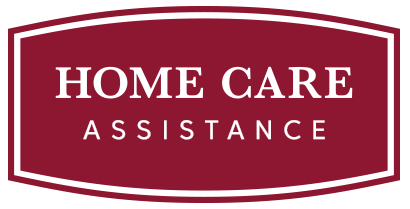Ways to Manage Hearing Loss

Nearly half of all seniors 75 and older have some type of hearing loss. Depending on the extent of the impairment, hearing loss can severely impact a person’s overall quality of life. Learning how to manage hearing loss can make it easier for seniors to enjoy day-to-day activities while remaining engaged with loved ones and friends.
Hearing Exams
A hearing exam should be part of every senior’s regular health checkup routine. Seniors can check with their doctors to find out their recommended schedules, but they should have exams right away if it’s been years since their hearing was last assessed. Your loved one could even start with a basic screening if he or she is unsure if a complete exam is necessary.
Hearing loss and other age-related conditions could make it challenging for your loved one to live alone at home safely. Families who find it difficult to care for their aging loved ones without assistance can benefit greatly from professional respite care. Dallas, TX, family caregivers who need a break from their caregiving duties can turn to Home Care Assistance. Using our proprietary Balanced Care Method, our respite caregivers can encourage your loved one to eat well, exercise regularly, get plenty of mental and social stimulation, and focus on other lifestyle factors that promote longevity.
Hearing Aids
Today’s hearing aids come in all shapes and sizes, and they’re often barely detectable when worn. Doctors often recommend hearing aids to treat some of the most common forms of hearing loss, even when the impairment is more severe. Although hearing aids aren’t meant to correct hearing problems, such devices, when properly fitted and adjusted, can significantly enhance an aging adult’s quality of life.
Modern hearing devices have advanced technology that allow them to fit into the ear canal so they’re more comfortable to wear. They can also be found with convenient features such as Bluetooth technology that makes it easier to connect to electronic devices.
Cochlear Implants
Many seniors aren’t even aware cochlear implants are an option. A cochlear implant involves the insertion of a device into the ear that bypasses the damaged portion of the ear and directly stimulates the auditory nerve. It should be noted that cochlear implants aren’t recommended for individuals who function well with hearing aids. They’re also not an option for those who have complete hearing loss.
Seniors can face a variety of challenges as they age, many of which can be mitigated with the help of professional in-home caregivers who provide high-quality in-home care. Dallas families trust Home Care Assistance to help their elderly loved ones age in place safely and comfortably.
Assisted Listening Devices
Assisted listening devices for older adults with hearing loss are meant to make it easier to understand what’s being said. Such devices include amplified phones, TVs with closed captioning technology, and gadgets that display the text of phone conversations.
Communication Tips
Hearing loss in seniors can sometimes be misinterpreted as confusion, stubbornness, or irritability. Additionally, some seniors with hearing loss may feel embarrassed by having to ask people to repeat themselves or speak louder, which may cause them to withdraw from social situations or become depressed. Caregivers can help by identifying signs of hearing loss and practicing the following tips for enhanced communication:
- Speak clearly while facing the person, but don’t shout
- Use appropriate facial expressions and hand gestures
- Avoid noisy backgrounds when possible
- Talk about one subject at a time to avoid confusion
There are a variety of age-related health conditions that can make it more challenging for seniors to live independently. However, many of the challenges they face can be easier to manage if their families opt for professional elderly care. Dallas families can rely on expertly trained caregivers to keep their loved ones safe and comfortable while aging in place. Trust your loved one’s care to the professionals at Home Care Assistance. Reach out to one of our compassionate Care Managers today at (214) 363-3400.

